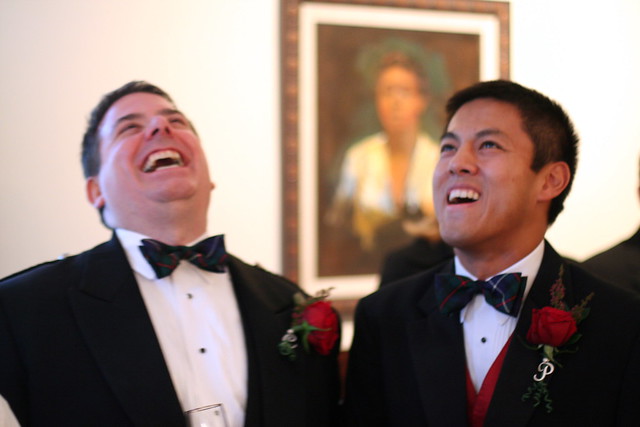
Image Credit: Benjamin Ragheb
As speakers we all know that if we add humor to our speech, we can get our audience to laugh. With a little luck this means that they are not sleeping and we’ll be able to keep their attention. Something that we probably don’t spend enough time thinking about is the simple fact that when our audience is laughing, they are actually paying attention to what we are saying and ultimately because of the importance of public speaking this is what every speaker wants to have happen. However, the adding of humor to a speech can be a tricky thing to do. There are a number of different things that we have to be able to take into account in order to get this right. Do you feel that you know what it would take to make your next speech funny?
It’s All About The Audience
You can’t just show up, start to deliver your speech and expect your audience to laugh. Instead, what you need to do is to take the time to understand your audience. What have they listened to before you started to speak? How hot / comfortable / bored are they right now? Ultimately what you need to be able to do is to read your audience. If you see the members of your audience sitting there with their arms folded over each other then there is a good chance that they are not fully present and may not get very much out of your speech. You need to get them to stand up, clap their hands, and otherwise move in order to jar them into paying attention to you.
One way to think about a speaker is as the person who controls the energy that is in the room when they are giving their speech. Instead of presenting to an audience that is made up of many different people, if they do it correctly then they can cause their audience to combine into one single entity that they are addressing. As a speaker it is your responsibility to control your audience’s energy levels as it reaches peaks during different parts of your speech.
Humor Does Not Always Work
As speakers we need to understand that every audience that we address will be different from all of the other ones that we have spoken to. What this means is that although we may have included some humor in our speech that made audience laugh in the past, the same humor may not work with this new audience. No big deal. When your humor is not working, you need to take a moment and acknowledge that it’s not working. This lightens the mood and can get the audience to be on your side once again.
In order to determine if our humor is working, we need to keep a close eye on our audience’s body language. Speakers need to understand that just because they don’t see their audience bent over laughing at something that they have said does not mean that they don’t find it funny. Many people choose to laugh on the inside and not show it on the outside. Others only smile slightly when they are laughing – we are all different. No matter what message you are getting from your audience, you need to keep moving forward with your speech. Know that if you are sincere with what you are trying to share with them, they will eventually accept what you are saying in the end.
Humor Needs To Be Used Carefully
As speakers we need to understand that humor can give us a great deal of power in our speeches. However, at the same time humor can easily turn on us and drag our speech down. We need to realize that if we use humor that is inappropriate for our audience, then we’ll just end up disappointing them. We need to make sure that we don’t make the mistake of singling out a member of the audience to make a joke instead of focusing on the circumstances that we find ourselves in. If you do this, then you risk creating a division between yourself and your audience.
Speakers need to understand that in order for some types of humor to work, you have to have been given permission to use it by your audience. Men can’t make fun of women, whites can’t make fun of blacks, etc. If you screw up and attempt to use some humor that does not go over well, then you need to have a recovery line like “Ok, so it seems like today is not my day to be funny…” The key thing to learn when your humor does not work is that this is can be a learning experience for you. Take the time after your speech to conduct an autopsy to find out where you went wrong.
What All Of This Means For You
There is no doubt that humor is a powerful tool. When we add humor to a speech we give ourselves the ability to better connect with our audience and share the benefits of public speaking with them. However, humor is a duel edged blade – we can end up hurting ourselves and the message that we are trying to deliver if we are not careful. Adding humor to a speech needs to be done the right way in order to get the results that you want.
As a speaker it is your job to read your audience before starting your speech. How are they sitting? If they don’t appear as though they are going to be engaged in your speech when you start, then you are going to have to shake things up and get them to stand up and move around in order to reset their expectations. As the speaker you control the energy in the room. Our humor does not always work with every audience. When it falls flat, as the speaker you need to acknowledge it and move on. Note that different audiences may laugh in different ways and just because you don’t see them laughing does not mean that they don’t find what you are telling them funny. Humor has to be used correctly. We need to understand what to do with humor and, of course, what not to do with it. Some forms of humor require us to get permission from our audience to use it. If you attempt humor and it does not work, take time after your speech is over to discover why it didn’t work.
Your next speech can be your best speech ever. If you can find ways to work more humor into it then you’ll have a good chance of capturing your audience’s attention and holding on to it. You need to understand both the power and the challenge of using humor in a speech. Humor does not always work out for us, but that’s ok as long as we learn from the times that it doesn’t work. Learn how to add more humor to your next speech and then get ready to have your audience both laugh with you and remember what you tell them.
– Dr. Jim Anderson
Blue Elephant Consulting –
Your Source For Real World Public Speaking Skills™
Question For You: Do you think that it is possible to put too much humor into a speech?
P.S.: Free subscriptions to The Accidental Communicator Newsletter are now available. Subscribe now: Click Here!
Note: What we talked about are advanced speaking skills. If you are just starting out I highly recommend joining Toastmasters in order to get the benefits of public speaking. Look for a Toastmasters club to join in your home town by visiting the web site www.Toastmasters.org. Toastmasters is dedicated to helping their members to understand the importance of public speaking by developing listening skills and getting presentation tips. Toastmasters is how I got started speaking and it can help you also!
What We’ll Be Talking About Next Time
As speakers I’m pretty sure that by now we all realize the power of humor in a speech. I know that I’ve had the opportunity to watch speakers who were able to use the importance of public speaking to make their audience laugh and laugh. When they were done, everyone came up to them and congratulated them about their speech. I would like to be able to speak like them. However, in order to do that I need to find out how to work more humor into my speeches. How can I become the funniest person in the room?

